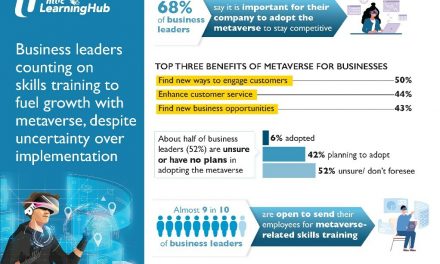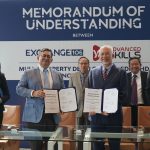Busy working individuals can expand their knowledge base whilst working on the flexible course structure.
In today’s age of rapidly changing data and information, businesses are becoming more complex, whilst employees work on more diversified disciplines across geographical boundaries. The world is now experiencing uncertainties when it comes to technological advancement, innovation, changes in political landscapes and national demography, amongst others.
Companies are now looking for individuals who are not only able to develop and implement business strategies, but also possess in-depth skills in specific domains for better business decision-making. Managers and leaders of organisations need to be quick on their feet and develop a strategic mindset to navigate this volatile situation.
This growing demand for people with special training indicates that knowledge has indeed become the most valuable asset of any business. As such, holders of higher education in business management are becoming increasingly sought-after in the modern workplace.
As an institution that produces work-ready graduates who progress to in-demand professionals, the Singapore University of Social Sciences (SUSS) seeks to further hone the managerial skills of business executives through its Master of Management (MMGT) and Doctor of Business Administration (DBA) programmes.
Why should you enrol in post-grad management studies at SUSS?
The MMGT programme seeks to train business executives in the effective administration of their respective organisations whilst building on the core foundations of management. It allows students to gain a deeper understanding of the specialisation of their choice, gives them the skills needed in today’s world and equips them to become successful leaders, whilst highlighting the need for sustainable, socially responsible and ethical practices.
On the other hand, DBA students can expect in-depth training in selected management areas that enable them to solve complex management problems whilst formulating evidence-based strategies. Designed for anyone from entrepreneurs and senior management executives to mid-career industrial practitioners, SUSS’ DBA programme seeks to develop students’ analytical thinking abilities and managerial skills through the acquisition of advanced and up-to-date knowledge as well as systematic research thinking and methodologies.
Offered at SUSS’ School of Business, the MMGT and DBA programmes expose students to emerging technologies and ideas across the global workplace. They are suitable for busy working individuals because of their flexible course structures (face-to-face or online) that allow learners to study at their own pace.
MMGT students will be exposed to a variety of specialisations, including artificial intelligence for business, analytics and visualisation, and experience design, amongst others. These courses aim to supplement each student’s undergraduate area of expertise with further knowledge and skills, thereby increasing their employment prospects in their chosen field and enabling them to face ambiguous and uncertain business environments.
The credentials for this programme are also stackable–starting with a 15-unit graduate certificate and progressively moving on to complete the full 60-unit master’s degree– thus enabling continued learning to become a reality.
Meanwhile, pursuing the DBA allows students to explore another perspective through research training where they eventually become “entrepreneur scholars”. The DBA curriculum also incorporates the latest trends and developments in business, equipping them to think more deeply about issues at an organisational level instead of focusing on daily operational matters.
What are the programme structures of the MMGT and DBA?
DBA students are expected to produce research that is relevant to the current business landscape with guidance from experienced faculty members, a cutting-edge curriculum and partnerships with businesses or faculty-led research initiatives. They will have opportunities to expand their network with business leaders and professionals, allowing them to stay up-to-date with the latest developments in the field.
The DBA is also a bilingual programme taught in Chinese and English, which enables both Mandarin-speaking and English-speaking business leaders from around the world to network and learn together.
The MMGT is offered in two pathways: regular and accelerated. The regular track allows working adults to take classes once to twice a week and complete the programme between 18 months and four years, whilst the accelerated path works well for full-time learners who can work on the programme about four days a week and finish in about a year.
The duration of candidature for the DBA lasts from three years to a maximum of seven years. Students will attend intensive classes held over three to seven consecutive days, from 9 am to 6 pm, alongside overseas immersion courses conducted over a few days in various Asia-Pacific cities.
Those who wish to apply to the MMGT programme must possess an undergraduate degree or an equivalent qualification from a recognised institution. However, individuals with relevant work experience and other qualifications may also be considered. Meanwhile, those who wish to enrol in the DBA programme must submit a research proposal indicating their research question and direction and pass an interview.











